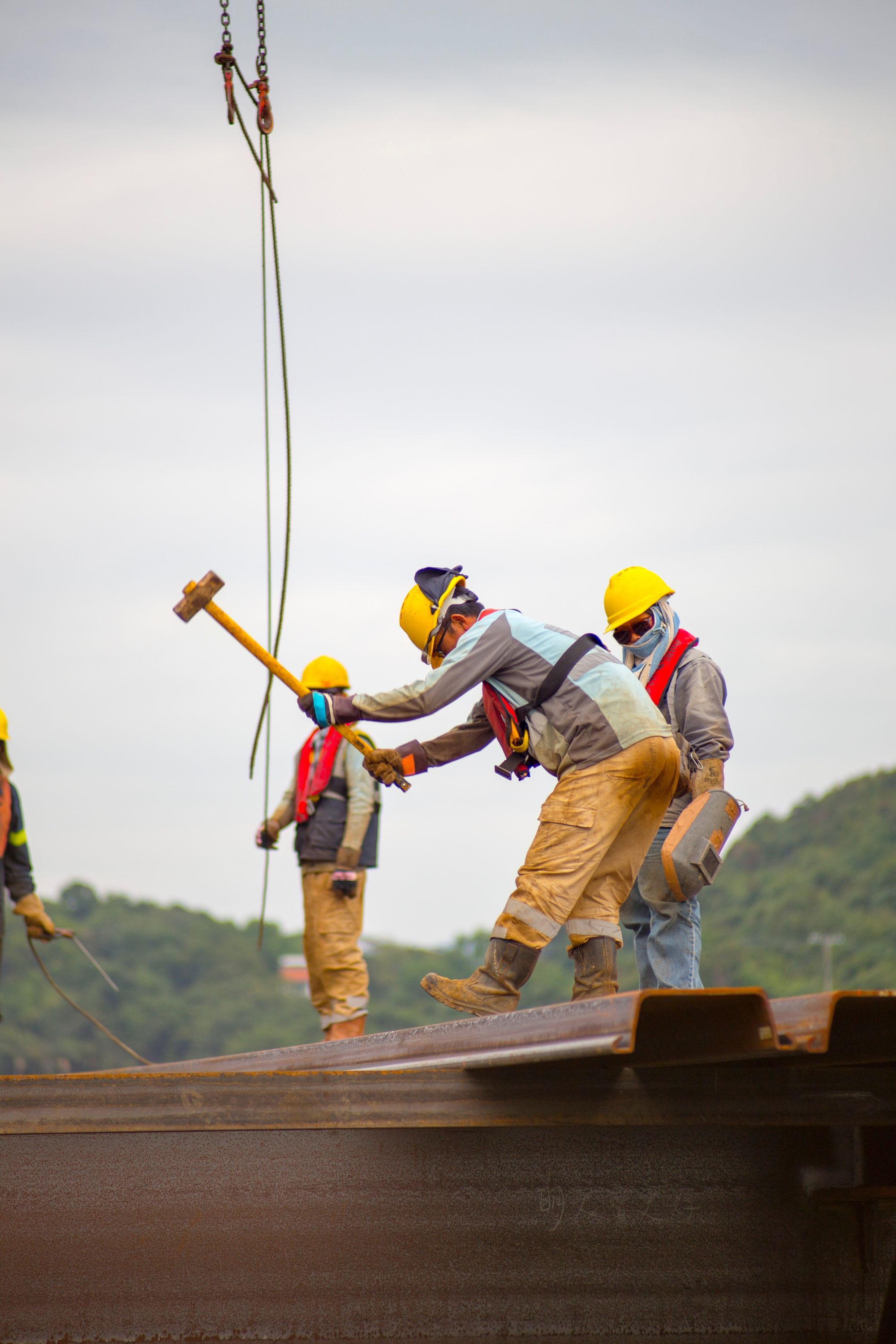Are you an employer or a contractor who has laborers from other states working for you? Do you want to get acquainted with the application of labor laws and regulations to avoid penalties and the labor union opposing you?
If the answer to all your questions is a yes, then you are at the right place, for this article will be your complete guide on the Inter-State Migrant Workmen Act, 1979, an act of the Indian Parliament enacted to regulate the condition of service of inter-state laborers in Indian labor law.

The working environment of the laborers, their number of working hours, and their pay for the same have always been a matter of concern as well as sensitivity. To protect the laborers and their rights while also ensuring their well-being, labor acts are enacted, which lays down labor rules and regulations to be followed by employers and contractors. Not following them can bring penalties, as well as the labor union rising against them.
The purpose of the Inter-State Migrant Workmen Act is to protect workers whose services are requisitioned outside their native state in India. Thus, this Act created a provision for the employers or the contractors to employ better-skilled workers available from other states when they face a shortage of skills among the locally available workers.
The topics that will be discussed in this article to become your complete guide for Inter-State Migrant Workmen Act are:
- What is the Inter-State Migrant Workmen Act?
- History of the Inter-State Migrant Workmen Act
- Applicability of the Inter-State Migrant Workmen Act
- Who is an Inter-State Migrant Workman?
- Registration of Establishments Under the Inter-State Migrant Workmen Act
- Licensing of Contractors Under the Inter-State Migrant Workmen Act
- Appeal in Case of Registration and Licensing of Establishments and Contractors, or Their Revocation
- Contents of the Inter-State Migrant Workmen Act
- Proposed Amendments to the Inter-State Migrant Workmen Act
- Occupational Safety, Health, and Working Conditions Code, 2020
- New Labor Codes and What Changes for the Inter-State Migrant Workers?
- How Can Deskera Help with Inter-State Migrant Workers?
- Key Takeaways
- Related Articles
What is the Inter-State Migrant Workmen Act?
Inter-State Migrant Workmen Act is an act enacted by the Parliament of India to regulate the employment of inter-state migrant workmen and to provide for their conditions of service.
This Act is applicable to every establishment and contractor who has employed five or more inter-state of Pass-Book to every inter-state migrant workmen with full details, payment of displacement allowance equivalent to 50% of monthly wages of Rs. 75/-, whichever is higher, payment of journey allowance including payment of wage during the period of the journey, suitable residential accommodation, medical facilities and protective clothing, payment of wages, equal pay for equal work irrespective of sex, etc.
The main responsibility for the enforcement of the provisions of the Inter-State Migrant Workmen Act lies with the Central Government and the State Governments/Union Territories in the establishments falling in the Central and State sphere, respectively.
History of the Inter-State Migrant Workmen Act
The employment of inter-state migrant workers was an exploitative system that was prevalent more or less all over India. In fact, in Orissa and some other states of India, this system was vastly institutionalized.
In states like Orissa, the migrant labor (which were locally called dadan labor) through contractors or agents (called Sardars/Khatedars) were sent for work outside the state in large construction projects.
At the time of the recruitment, the Sardar would promise the workmen would be calculated on a piece-rate basis. However, considering that this system was prone to several cases of abuse, it meant that the promises of the Sardar were broken, and the migrant laborers were not paid every month as they had been promised.
The whole system was exploited to such an extent that once the workers came under the clutches of the contractor, he or she would be taken to a far-off place on payment of railway fare only. Additionally, there was no fixation on the working hours of the migrant laborers, and they, in fact, had to work on all days of the week under extremely bad working conditions.
It was on 21st October 1976 that the 28th State Labor Ministers conference recommended the setting up of a compact and small committee to examine all the issues regarding inter-state migrant workers. Post this, they had to suggest measures for reducing and eliminating the abuses prevalent in the interstate workers' deployment.
The compact committee, which was constituted in February 1977, recommended the enactment of separate central legislation to regulate the employment of interstate migrant workers.
This was recommended because it was observed that the provisions of the Contract Labour (Regulation and Abolition) Act of 1970, even after necessary amendments, were insufficient in taking care of the wide range of malpractices that were indulged in by the principal employers, contractors, Sardars, Khatedars, etc.
Thus after the examination of the recommendations of the compact committee in consultation with the state governments and the relevant central ministries, the Inter-State Migrant Workmen (Regulation of Employment and Conditions of Service) Act was passed by both the houses of the Parliament and the President of India gave his assent on 11th June 1979.
The two main characteristics of this Act are:
- Making provision for availing the onsite services of the inter-state workers by the establishments or contractors to overcome only the temporary shortage of required skilled workers in a state.
- Not encouraging interstate migration of workers against the interests of the local workers as the principal employers would have to incur more costs in deploying interstate workers.
Applicability of the Inter-State Migrant Workmen Act
The Inter-State Migrant Workmen Act extends to entire India and applies to:
- Every establishment which has employed at least five or more inter-state migrant workers (not necessarily in addition to other workers) or who were employed on any day of the preceding twelve months.
- Every contractor who has employed at least five or more inter-state migrant workers (not necessarily in addition to other workmen) on any day of the preceding twelve months.
Who is an Inter-State Migrant Workman?
As defined in the Act, an inter-state migrant workman is “any person who is recruited by or through a contractor in one state under an agreement or other arrangement for employment in an establishment in another state whether with or without the knowledge of the Principal employer (-Section 2-e).”
Registration of Establishments Under the Inter-State Migrant Workmen Act
It is required that each principal employer of an establishment to which the Inter-State Migrant Workmen Act applies will have to give an application for the registration in triplicate in Form No.01 to the registering officer along with the prescribed fees.
Once the application is received and accepted, the registering officer will issue a registration certificate in Form-II based on the specifications of that state’s inter-state migrant workmen act rules.
If, however, you get delayed in giving your application for registration, then the registering officer may entertain your application after the deadline if they feel that you were prevented from making the application in time due to sufficient causes.
Within a month after receiving the application for registration under subsection (1), the registering officer will:
- Register the establishment and issue the certificate of registration in the prescribed form to the principal employer of the establishment if the application is complete in all aspects. (Subsection 2-a)
- Return the application to the principal employer of the establishment if the application is incomplete. (Subsection 2-b)
However, if within a month after the receipt of an application for registration of an establishment under subsection (1), the registering officer does not grant under clause (a) of the subsection (2), the certificate of registration applied for and did not return the application under clause (b) of that sub-section, the registering officer shall, within fifteen days of the receipt of an application in this behalf, from the principal employer, register the establishment and issue to the principal employer a certificate of registration in the prescribed form.
Revocation of Registration in Certain Cases
If the registering officer is satisfied, either on the basis of the reference made to him on this behalf or otherwise, that the registration of your establishment has been obtained through misrepresentation or suppression of any material fact or that for any other reason, your registration will become useless or ineffective. However, you will be given an opportunity to be heard. Also, approval of the appropriate Government would be needed for revocation of your registration.
If found necessary by the registering officer due to any special reasons, and the revocation is pending, then he may, by order, suspend the operation of the certificate of registration for such period as may be specified in the order and serve by registered post, such order along with a statement of the reasons on the principal employer. Such orders take effect on the date on which such service is effected.
Note: No principal employer is allowed to employ inter-state migrant workmen in their establishment without obtaining a certificate of registration under this Act (Section-6).
Licensing of Contractors Under the Inter-State Migrant Workmen Act
With effect from the date as decided by the appropriate Government and informed through a notification in the Official Gazette, no contractor to whom the Inter-State Migrant Workmen Act applies shall:
- Recruit any person in a State for the purpose of employing him in any establishment that is situated in another State, except under and in accordance with a license issued on that behalf.
- Employ as workmen for the execution of any work in any establishment in any State, persons from another State (not necessarily in addition to other workers), except under and in accordance with a license issued on that behalf.
You will have to apply for a recruitment license in triplicate in Form-IV to the licensing officer having jurisdiction in relation to the area wherein the recruitment is made. The application for the employment license in Form-V is to be submitted to the licensing officer.
To have your license approved, it may have a condition like:
- The terms and conditions of the agreement or other arrangements under which the workmen will be recruited
- The remuneration payable
- The hours of work
- Fixation of wages and other essential amenities in respect of the inter-state migrant workmen
And so on. These will be determined by the appropriate Government as it deems fit to impose in accordance with the rules. The license would thus then be issued only after you have filed an application along with the license fees and you meet the conditions as laid down by the appropriate Government.
If, for any special reasons, the licensing officer is convinced that it is necessary for you to give security for the due performance of the conditions of the license, then he or she will communicate the same reasons to you. You would then be given an opportunity to represent your case. If you have to give security- either for getting a license or continuing to hold one, then the security to be furnished by you will be reasonable.
The factors on the basis of which the need for the security is usually determined are:
- Number of workmen employed
- Wages payable to them
- Facilities which shall be afforded to them
And other such relevant factors.
Remember, to get your license granted, the application for the same must be made in the prescribed form and should contain the following details:
- Location of the establishment
- Nature of the process
- Operation or work for which inter-state migrant workmen are to be employed
And other such particulars as may be prescribed.
The licensing officer will then investigate your application and the details you have mentioned therein. If they are satisfied and you meet all the requirements, then your license will be granted for the period specified therein. It might even be possible to get your license renewed from time to time for that time period, on payment of the renewal fees, and after you have fulfilled all the conditions prescribed therein.
Revocation, Suspension, and Amendment of Licenses in Certain Cases
If the registering officer is satisfied that the either on the basis of the reference made to him on this behalf, or otherwise that the license granted to you has been:
- Obtained through misrepresentation or suppression of any material fact or
- That without any reasonable reasons, you have failed to comply with the conditions subject to which the license was granted or
- That has contravened any of the provisions of this Act or the rules made thereunder,
Then without any prejudice to any other penalty to which you may be liable under this Act, the licensing officer may, after giving you the opportunity to be heard, by order in writing, revoke the license or forfeit the security given by you, and communicate the order to you.
Thus, where found necessary by the licensing officer to do so for special reasons, he or she may, pending such revocation or forfeiture, by order, suspend the operation of the license for such period as may be specified in the order, and serve, by registered post, such order along with a statement of the reasons for the same. Such an order will take effect on the date on which such service is effected.
Another possibility here is, subject to any rules that may be made on this behalf, the licensing officer may vary or amend a license granted.
Appeal in Case of Registration and Licensing of Establishments and Contractors, or Their Revocation
If you are aggrieved in regards to the registration of your establishment, or by the revocation of the registration of your establishment or by the issuance of the license that you would need as a contractor, or by the revocation of your license of contractor, in that case, within 30 days from the date on which the order was communicated to you, you can choose to appeal to an appellate officer who shall be a person nominated for the same reason by the appropriate Government.
Your appellate officer may entertain your appeal after the expiry of the above-mentioned period of 30 days if he or she is satisfied that you were prevented from filing the appeal in time by a sufficient cause.
After giving you the opportunity to be heard, your appellate officer will dispose of the appeal as expeditiously as possible.
Contents of the Inter-State Migrant Workmen Act
The main contents of the inter-state migrant workmen act, which fulfills its purpose completely, are:
Rights of Inter-State Workers
In addition to the general labor laws that are applicable to all the workmen, the additional rights that inter-state workers are entitled to are:
- Equal or better wages for the similar nature and duration of work as applicable for the local workmen, or as per the stipulated minimum wages as under the Minimum Wages Act, 1948; whichever is more among them both.
- Displacement allowance to be paid at the time of the recruitment, which should be equal to 50% of the monthly wages payable to him, or Rs.75, whichever is higher. This allowance shall not be refundable and shall be in addition to the wages and other amounts that are payable to him.
- Journey allowance, which should not be less than the fare from the place of residence of the inter-state migrant workmen to his or her place of work in the other state. This should be paid for both- outward and return journey. Additionally, the inter-state migrant worker must receive his wages during his journey period, such as if he were on duty.
- Suitable conditions of work
- Suitable residential accommodation and medical facilities free of charge on a mandatory basis.
- Termination of the employment after the contract period, without any liability.
- The right to lodge complaints with the authorities within three months of an accident, incident, etc.
- They should get regular payments of their wages.
- They should get equal pay for equal work, irrespective of their gender.
- They should get the prescribed protective clothing.
- In case of serious bodily injury or the fatal accident of any inter-state migrant worker, it should be reported to the specified authorities of both the States and also to the next of kin of the workman.
Role of Contractors
The role of contractors, in addition to them requiring to obtain a license if they have employed five or more inter-state migrant workers on any day of the preceding 12 months, is:
- Periodically furnish all the details of the inter-state migrant workmen in such forms as is prescribed by the state government.
- Maintain the registers that have the details of the inter-state migrant workers. They should make those registers available for scrutiny by the statutory authorities when required.
- They should issue a passbook affixed with a passport-sized photograph of the workman. This will mention the name and place of the establishment where the worker is employed, the period of employment, wage rate, and other such vital information. This passbook should be issued to every inter-state migrant worker.
- The contractor is responsible for reporting any incident that has caused a fatal accident or serious injury to the inter-state migrant workers to the specified authorities of both the states and also to the next of kin of the workman.
- If violations are committed to the Inter-State Migrant Workmen Act, then the contractor would be liable for receiving the prescribed punishments.
Role of Principal Employers
- It is mandatory for all principal employers who have employed directly or indirectly five or more inter-state migrant workers on any day of the preceding 12 months to get registered.
- They should maintain the registers that have the details of the inter-state migrant workers. They should make those registers available for scrutiny by the statutory authorities when required.
- To nominate a representative duly authorized by him or her to be present at the time of the disbursement of wages by the contractor. It would be the duty of this representative to certify the amounts paid as wages in such manner and may be prescribed.
- If the contractor fails to pay the due wages and other benefits to the inter-state migrant workers, then the principal employer would become liable to bear them.
- If violations are committed to the Inter-State Migrant Workmen Act, then the principal employer would be liable for receiving the prescribed punishments.
Role of State Governments
- They will have to appoint inspectors who will be overseeing the implementation of this Act.
- They will have to appoint the registration officers who will be responsible for granting and revocation of the registration of contractors, or principal employers, or establishments.
- They have to appoint the licensing officers who will be responsible for granting, suspending, and revocation of licenses to contractors, or principal employers, or establishments.
- They will have to make rules for carrying out the purposes of this Act, subject to the condition of previous publication.
- They will also be entertaining appeals from the aggrieved parties and then be responsible for its disposal as per this Act.
Proposed Amendments to the Inter-State Migrant Workmen Act
In the Inter-State Migrant Workers (Regulation of Employment and Conditions of Service) Amendment Bill of 2011, it was proposed that this Act should be made more gender-neutral by amending its title and replacing the word ‘workman and workmen’ with the words ‘worker and workers’ respectively.
However, other than this, the lawmakers have not considered bringing additional provisions to ensure the strict implementation of this Act, along with more accountability and punishments for violations. Thus, considering the limitations of the existing Act in that regard, the possible improvements that can be brought about are:
- There should be compulsory registration of inter-state migrant workers in the gram panchayat or municipality, or corporation.
- The inter-state migrant workers should be provided with the benefits of Public Distribution System (PDS) Cards as this would save them from having to buy food grains and kerosene at higher prices.
- Aadhar identity cards should be made compulsory for inter-state workers.
- The remuneration of the inter-state migrant workers should be deposited directly in their bank accounts rather than them being paid through cash by the contractors.
- It should be mandatory for every state government to operate an internet portal that indicates the registered principal employers, contractors, establishments, and interstate workmen details, including their aadhar card data for general public information and verifications. These details of the inter-state migrant workers should be uploaded promptly by the contractors and principal employers. Non-compliance by the principal employers or contractors to be treated as a violation of the Act and liable for punishment.
- No contractor should be able to deploy workers outside the state without first getting registered in that state. Additionally, all the details of the inter-state migrant workers' deployment outside the state will have to be made available to the state authorities promptly.
- The state government authorities should conduct a mandatory yearly audit of all the contractors or employers in the state regarding the deployment of interstate workers. These employers and contractors should also be required to submit compliance status or implementation reports to the state assembly for their scrutiny. If non-compliance is found, heavy penalties or punishments should be imposed to ensure that the Act and its provisions are carried out.
- Considering that the states which are giving more employment to the inter-state migrant workers are ahead in demographic transition, the finance commission should give weightage in the devolution of central government funds to these states. (Note: Demographic transition of a state is a real index and status of all-round human and economic development)
While these proposed amendments do not solve all the social problems revolving around inter-state migrant workers, if carried out, they will definitely secure their well-being even further.
Occupational Safety, Health, and Working Conditions Code, 2020
Occupational Safety, Health, and Working Conditions Code, 2020 is a code that consolidates as well as amends the laws regulating the occupational safety, health and working conditions of individuals employed in an establishment.
This Act replaces the old 13 central labor laws while amalgamating them:
- The Factories Act, 1948
- The Plantations Labour Act, 1951
- The Mines Act, 1952
- The Working Journalists and other Newspaper Employees (Conditions of Service and Miscellaneous Provisions) Act, 1955
- The Working Journalists (Fixation of Rates of Wages) Act, 1958
- The Motor Transport Workers Act, 1961
- The Beedi and Cigar Workers (Conditions of Employment) Act, 1966
- The Contract Labour (Regulation and Abolition) Act, 1970
- The Sales Promotion Employees (Conditions of Service) Act, 1976
- The Inter-State Migrant Workmen (Regulation of Employment and Conditions of Service) Act, 1979
- The Cine Workers and Cinema Theatre Workers Act, 1981
- The Dock Workers (Safety, Health, and Welfare) Act, 1986
- The Building and Other Construction Workers (Regulation of Employment and Conditions of Service) Act, 1996
This bill was formulated according to the Report and Recommendations of the Second National Commission on Labour and was passed by the Lok Sabha on 22nd September 2020 and by the Rajya Sabha on 23rd September 2020. It received the presidential assent on 28th September 2020. However, the date of when it will be coming into force is yet to be notified in the official gazette.
New Labor Codes and What Changes for the Inter-State Migrant Workers?
The two main codes that primarily with the informal workers in India are:
- Occupational Safety, Health, and Working Conditions Code, 2020 (OSHC)
- The Code on Social Security (CSS)
When comparing these to the old law- The Inter-State Migrant Workmen (Regulation of Employment and Conditions of Service) Act, 1979 (ISMA), we see the following changes:
- While both OSHS and CSS have increased the scope of who is considered as an inter-state migrant worker by also including those individuals who move from one state to another for employment on their own in addition to those who are recruited by contractors, the threshold for these codes to be applicable on an establishment or on contractor has been doubled to 10 inter-state migrant workers.
This provision hence ends up baring millions of migrant workers who work in smaller establishments from being able to avail the benefits of the code. Thus, with a wider definition, they are giving poorer coverage. Additionally, no provision has been made for intra-state migrants, which is a majority in India.
- With the new codes, it has now become mandatory to have the inter-state migrant workers registered by the centre and the states. This ensures that even the centre has comprehensive information on the number of inter-state migrant workers and their origins, which will help the centre to prepare and respond better in future challenges similar to COVID-19. While the ISMA did have several provisions requiring such registration, in general, it was an abysmally implemented law.
Additionally, provisions in the OSCH also allow migrant workers to register with the state themselves through their Aadhaar card and telephone authentication. However, this again highlights that the assumption that all migrant workers will have Aadhaar and access to smartphones is wrong.
Thus, it is imperative that the Government provide them with the Aadhaar card proactively, rather than penalizing them for not having it so that they can avail the benefits of these codes. Further on, the Government also needs to come up with a strategy that will let the migrant workers register themselves without needing a smartphone.
- Now, there has been introduced a provision that guarantees the portability of the public distribution system. This means that it has become mandatory for governments to provide an option to the migrant workers to either receive their ration provisions in their origin state or in their destination state.
However, for this provision to be a complete success, an exceptional level of cooperation and commitment is required among various state governments, central Governments, and migrants themselves. So far, only a few states have been successful here.
Additionally, the migrant data that is to be now collected at the centre and state level needs to be comprehensive, accurate and updated as quickly as possible for this provision to work.
Lastly, the challenges and unique requirements of each state should be given due consideration instead of over-centralization to ensure that this provision fulfills the needs of the inter-state migrant workers and ensures their better well-being.
How Can Deskera Help with Inter-State Migrant Workers?
Deskera People is the online HR software that will be the most useful to you in regards to inter-state migrant workers because through this, you will be able to maintain detailed records of each employee, including their personal details, wages, leaves, etc., on one platform.

This will help in maintaining the obligatory registers of your inter-state migrant workers, as well as giving them their journey allowances, displacement allowances, as well as their wages on time.
In fact, through Deskera People, you would be able to set up different pay schedules such as weekly, semi-monthly, and monthly as per the different groups of employees or contractors, thereby letting you meet the industry-specific pay frequencies.
Additionally, by using Deskera People Direct Deposit Service, you would just need your migrant workers' bank details to be able to transfer their wages directly to their bank accounts.
Key Takeaways
The inter-state migrant workers of India are the most vulnerable population of the nation, often victims of exploitation in terms of underpayment, unsuitable working conditions, unsuitable living conditions, poor health care, and overall poorer living standards.
It had hence become crucial to protect this segment of the population, which was also vital for the growth and development of the entire nation. This led the Indian Parliament to pass the Inter-State Migrant Workmen Act in 1976, whose main purpose was to regulate the employment of inter-state migrant workmen and to provide for their conditions of service and for matters connected therewith.
While the Act did have several gaps and especially lacked in ensuring compliance of its provisions by the contractors, establishments, and principal employers, it did have several benefits that increased the overall well-being of the migrant workers.
Another major drawback of this Act was the absence of a comprehensive database of all the migrant workers at the Centre level as well, as well as the absence of portability of public services.
These were corrected by the follow-up amendments as well as the new labor codes, namely Occupational Safety, Health, and Working Conditions Code, 2020 (OSHC) and the Code on Social Security (CSS). To ensure compliance with the responsibilities as well as statutory requirements of these Acts, Deskera People will come to your rescue.
Related Articles















